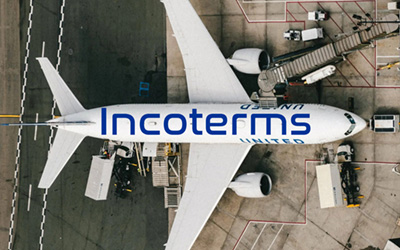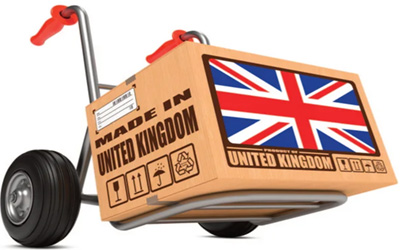Your Ultimate Guide to International Trade Terms, Incoterms in Global Air Freight
In the fast-paced world of international trade, mastering Incoterms in Air freight is crucial for businesses. These International Commercial Terms, established by the International Chamber of Commerce (ICC), serve as the backbone of global trade agreements. They define the responsibilities, costs, and risks associated with the transportation and delivery of goods between buyers and sellers.
The Evolution of Incoterms: From 1936 to Present Day
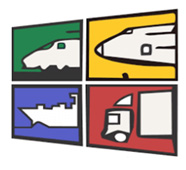 Incoterms have come a long way since their inception in 1936. Originally created to standardise diverse trade practices, these terms have undergone several revisions to keep pace with the ever-changing landscape of global commerce. The most recent update, Incoterms 2020, reflects modern logistics practices, technological advancements, and current regulatory requirements. A full guide to the 2020 Incoterms.
Incoterms have come a long way since their inception in 1936. Originally created to standardise diverse trade practices, these terms have undergone several revisions to keep pace with the ever-changing landscape of global commerce. The most recent update, Incoterms 2020, reflects modern logistics practices, technological advancements, and current regulatory requirements. A full guide to the 2020 Incoterms.
Decoding the Structure of Incoterms
Incoterms are divided into two main categories:
1, Terms specific to sea and inland waterway transport
2, Terms applicable to all modes of transport, including air freight
This structure ensures that businesses can select the most appropriate terms for their specific shipping needs, whether they’re transporting goods by Sea, Air, Road or Rail. SARR
Key Components Defined by Incoterms in Air Freight
When it comes to air freight, Incoterms clarify three critical aspects of the shipping process:
1, Point of Delivery:
This specifies the exact location where the goods are considered to have been delivered from the seller to the buyer.
2, Risk Transition:
This identifies the precise moment when the risk of loss or damage to the goods transfers from the seller to the buyer.
3, Cost Allocation:
This outlines which party is responsible for various costs associated with the shipment.
Incoterms Suitable for Air Freight:
While not all Incoterms are applicable to air freight, several terms are particularly well-suited for this mode of transport. Let’s explore the most relevant ones:
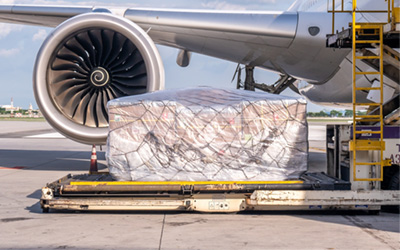
1, EXW (Ex Works):
Under this term, the seller’s responsibility is minimal. They simply make the goods available at their premises, and the buyer handles everything else.
2, FCA (Free Carrier):
The seller delivers the goods to a carrier at a specified location and handles export clearance.
3, CPT (Carriage Paid To):
The seller pays for transporting the goods to an agreed destination, but risk transfers when the goods are handed to the first carrier.
4, CIP (Carriage and Insurance Paid To):
Similar to CPT, but the seller also covers insurance costs.
5, DAP (Delivered At Place):
The seller is responsible for delivering the goods ready for unloading at the destination, bearing all transportation costs and risks until arrival.
6, DPU (Delivered at Place Unloaded):
The seller’s responsibility extends to unloading the goods at the named place.
7, DDP (Delivered Duty Paid):
This term places maximum obligation on the seller, who is responsible for all costs and risks, including duties and taxes, until the goods are delivered to the buyer.
Selecting Incoterms in Air Freight Strategically
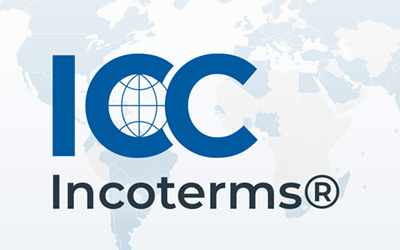 Choosing the right Incoterm for your air freight shipment requires careful consideration of several factors: Consider visiting the ICC website.
Choosing the right Incoterm for your air freight shipment requires careful consideration of several factors: Consider visiting the ICC website.
Control Over the Shipping Process:
Assess how much control you need over the shipment. Terms like EXW give the buyer more control, while DDP puts the seller in charge of the entire process.
Risk Management
Determine at which point you want the risks to transfer. This decision can significantly impact your liability and insurance needs.
Cost Optimization
Evaluate which party is better positioned to handle specific costs. This can help in optimizing overall shipping expenses.
Insurance Requirements
Consider whether you want insurance to be included as part of the shipment term. CIP, for instance, includes insurance coverage.
Customs Handling
Decide which party is better equipped to handle customs procedures based on experience and geographical location.
Conclusion
By mastering these Incoterms and understanding their application in air freight, businesses can navigate international trade with greater confidence and efficiency. Remember, the right Incoterm can significantly impact your costs, risks, and overall shipping experience. Choose wisely to optimise your global air freight operations.
FAQ's
Q: Are Incoterms applicable to air freight?
A: Absolutely. Many Incoterms, such as CIP and CPT, are frequently used in air freight transactions.
Q: What does CPT mean in air freight?
A: CPT (Carriage Paid To) means the seller pays for freight to the specified destination, with risk transferring to the buyer once the goods are in the carrier’s possession.
Q: Can CIF be used for air freight?
A: No, CIF (Cost, Insurance, and Freight) is specific to sea and inland waterway transport. For air freight, CIP is the equivalent term.
Q: Which Incoterms work for both air and sea freight?
A: EXW, FCA, CPT, CIP, DAP, DPU, and DDP are versatile terms suitable for both air and sea freight.
SARR Logistics UK
With a legacy built on trust, backed by extensive experience, a global network, and a customer-centric approach, SARR Logistics UK emerges as the ultimate 4PL logistics partner for all your freight forwarding and supply chain needs. We are in touch with the latest Warehouse Automation systems and tracking systems, if you would like to know more reach out to us today and experience a seamless, efficient, and dependable shipping solution tailored to elevate your business. For further inquiries and to explore how SARR Logistics UK can help you contact our team today.


